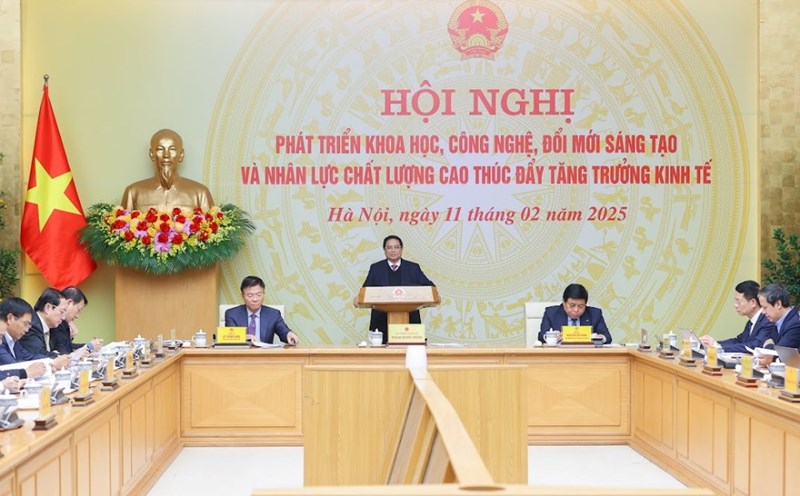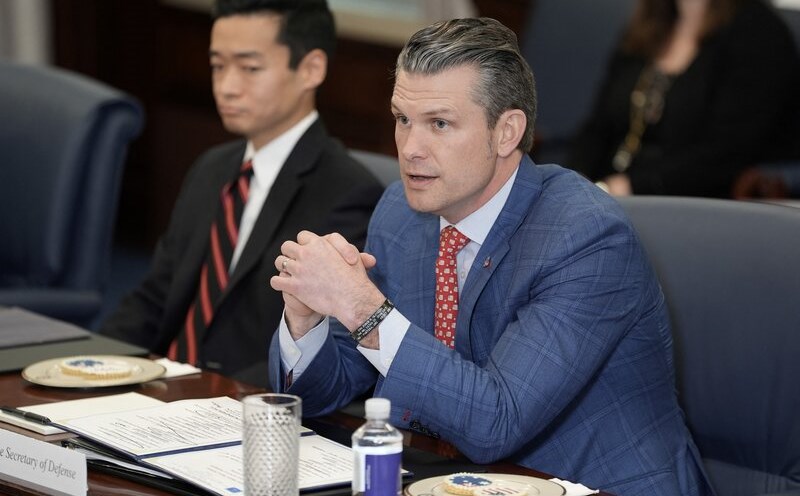On February 11 in Hanoi, Politburo member and Prime Minister Pham Minh Chinh chaired the conference on science and technology development, innovation and high-quality human resources to promote economic growth.
Concluding the conference, Prime Minister Pham Minh Chinh emphasized 9 groups of key tasks and solutions.
Firstly, raising awareness throughout society about the position, role and importance of science and technology, innovation, digital transformation and training of high-quality human resources for high and sustainable growth.
Second, review at all levels, sectors, institutes, schools, and enterprises the bottlenecks and obstacles in terms of institutions, mechanisms, and policies to continue to improve, amend, and supplement them promptly and effectively, especially from the actual operations of the units; this work must be done in the first and second quarters of 2025.
In particular, urgently develop and submit to the National Assembly at the upcoming extraordinary session a draft Resolution on piloting a number of new policies to remove difficulties and obstacles for science and technology development, innovation, and digital transformation.
Third, it is necessary to promote infrastructure development, including digital infrastructure, information technology infrastructure, transport infrastructure, infrastructure for the fourth industrial revolution, energy infrastructure, healthcare infrastructure, education, society, sports, cultural infrastructure, cultural industry, and entertainment; build innovation centers; infrastructure development must be inclusive and comprehensive in all fields nationwide.
Fourth, we must diversify resources, including resources from the State, people, businesses and society; public-private partnership and socialization; borrowing and issuing government bonds. To develop any sector or industry, we must have policies and mechanisms to mobilize resources to prioritize the development of that sector.
Fifth, innovate and diversify training forms; training from high school to university, postgraduate, supplementary training, expert training, technical training, domestic and foreign training, hiring experts, training cooperation, building specific mechanisms for training, attracting training...
Sixth, governance must be smart, optimize management, eliminate the request-grant mechanism, cumbersome procedures, increase decentralization and delegation of authority along with resource allocation, improve implementation capacity, strengthen supervision and inspection, increase post-inspection, reduce pre-inspection; management must evaluate on overall efficiency, not local efficiency.
Seventh, promote international cooperation and integration, especially the transfer of source technology, core technology, and the most advanced technology to "turn the situation around, change the state" as quickly as possible, especially in priority areas. On this occasion, the Prime Minister thanked the world's major economic and technological corporations present in Vietnam.
Eighth, ministries, branches, localities, levels, institutes, schools, and scientists need to cooperate closely and effectively on the basis of the functions, tasks, and powers of each entity, putting the interests of the nation, people, and country above all, first and foremost, in the spirit of "harmonious interests, shared risks", healthy competition, and effective cooperation. Those who do well must be rewarded and encouraged, and those who do not do well must stand aside.
Ninth, develop the Vietnamese innovation ecosystem globally to attract brainpower, technology, and human resources from all over the world in all fields. The Prime Minister also called on businesses and philanthropists to continue contributing to the National Innovation Center (NIC) in Hoa Lac, Hanoi.











